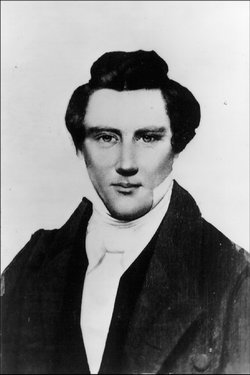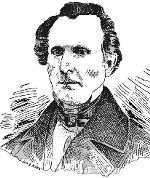
In 1844, Mrs. M.L. Shew published the third edition of an 156-page book on health reform entitled Water Cure for Ladies: a Popular Work on the Health, Diet, and Regimen of Females and Children, and the Prevention and Care of Diseases. In it she teaches:

In 1833, the LDS Church founder, Joseph Smith received his health reform vision. In Doctrine and Covenants (section 89, verses 5-17) Smith reveals the following health reforms:

Sylvester Graham, in his Lectures on the Science of Human Life, (published in 1849) expounded on the following:
Furthermore, Graham was opposed to both marital excess and self-abuse (masturbation). Graham believed that stimulating foods aroused the sexual passions. Therefore, he concluded that one of the best ways to control sexual urges was to adopt a vegetarian diet and forsake condiments, spices, alcohol, tea, and coffee (Lecture to Young Men on Chastity).
In the 1850's Dio Lewis became a nationally known lecturer on health reform. He taught many of the same things as Graham, but he added the reform of eating only two meals a day. He also discouraged the use of tobacco, tea, and coffee.
Larkin B. Coles was less known than Graham or Lewis. He was a
preacher-physician and a follower of William Miller. Miller, a Baptist
layman, started the movement known as Adventism in the 1830s in New York. He
became convinced that the end of the world was near and that he must tell the
world. He was welcomed at different churches as a speaker and the principles he
taught continue to be held by many.
Before his death in 1856, Coles authored two books on health. In his books he advocated fresh air, exercise, a vegetarian diet, non-use of stimulants, reform in dress, sexual purity, and drugless medicine.
Coles not only warned against meat eating because it increased the animal propensities, but he also discussed the connection between meat-eating and disease. He was notable for sounding a warning (which others health reformers had already voiced) that there was a relationship between tobacco use and carcinomas. (The Beauties and Deformities of Tobacco-Using)
(Some information from http://www.ellenwhite.org/health1.htm)